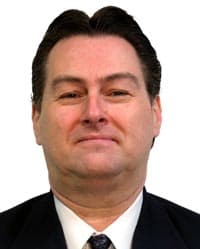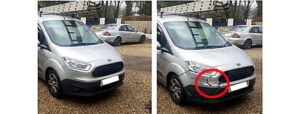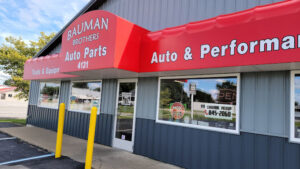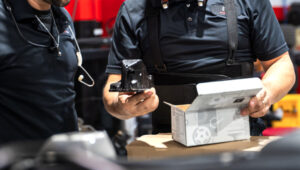An important lesson I learned during my 50 years in the aftermarket business is, “What keeps our customers’ doors open is what keeps our doors open”
In my previous installments, I talked about the changing aftermarket landscape. We talked about potential changes that may be brought about due to the emergence of EVs, changes in customer loyalty, and the new reality in a post-pandemic world. For this installment, I’d like to shift gears and discuss something that has not changed: the need to understand your customers’ business.

I began my career as a delivery driver at a small jobber store in the early ’70s. For those who were not around at the time, the ’70s were an interesting time for the aftermarket. It was a time when catalog racks dominated the average parts store counter, and inventory was controlled by something called a cardex.
The price of gas skyrocketed due to gas shortages in ’73 and ’78, inflation was rampant, and out of sheer necessity, many people began to perform their own maintenance. In my mind, this is when retail auto parts transitioned from people “hot-rodding” their cars into the do-it-yourself (DIY) business that we know today.
It was also when I was introduced to one of the most important lessons I learned during my 50 years in the business is, “What keeps our customers’ doors open is what keeps our doors open.” To fully appreciate the significance of this statement, I think it’s important to provide you with the full context of how it came about.
On a Saturday in 1975, I found myself working the counter with the owner of a small jobber store in Silicon Valley. Late in the afternoon, a DIY customer came into the store to pick up a rebuilt engine we had just completed in our machine shop. I stood and watched as the store owner walked the customer through everything we had done to return his engine to like-new condition. After about 20 minutes of explanation and related sales process that would make any sales coach proud, the owner hit the cash register with a $4,000 sale. It’s still a great sale in today’s dollars. This is where the lesson begins.
Once the customer had left the store, I fell victim to my teenage brain and found myself in the following conversation:
Me to the owner, “I bet you love it when your fingers hit the cash register with a sale like that.”
Owner, “What did you say?”
Not having enough sense to walk away, I repeated myself.
To my surprise, the owner said, “I think you’ve got what we do here all wrong.”
I knew I had stepped on a landmine at this point, but I didn’t know why.
The owner, “Those types of sales are nice, but you cannot run a business on them because they’re not predictable. I would much rather have the $2.00 oil filter sale from the shop down the street every time they make that sale.”
Sensing that I was completely lost in his message, he explained that the $2.00 filter was more important to him because the filter keeps the shop’s doors open, and what keeps the shop’s doors open is what keeps his doors open. There it was, one of the greatest lessons I ever learned.
Nearly 50 years later, the message is the same for any company focused on servicing professional repair shops. Repair shops do not need coupons, flyers, and baker’s dozen deals. They need their suppliers to understand what keeps their doors open and be dedicated to helping them keep their doors open, which in turn will keep their store doors open.
I have always found it ironic that the most essential lesson I learned about the wholesale parts business resulted from a retail transaction. Business lessons are all around us, all we have to do is pay attention.
Sharp’s career began in his father’s repair shop in 1967 and then moved to the parts side of the industry in 1973. For the last 48 years, Sharp has worked exclusively in the replacement parts segment of the automotive aftermarket. In 1988, Sharp began what would turn out to be a 33-year career with WORLDWIDE Trading Company/ WORLDPAC, from which he retired in 2021. He is currently studying for his master’s degree. Sharp is currently working as an Executive in Residence at the Endeavor Institute and can be reached at ssharp@endeavormgmt.com









Comments are closed.